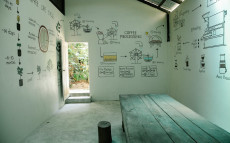- pathfindersAI
- Job Profile
Biological Science Teachers, Postsecondary
Summary
Biological Science Teachers, Postsecondary: Illuminating the Path of Discovery
What They Do
Biological Science Teachers at the postsecondary level are a vital force in the academic and scientific community. They are educators who impart knowledge and spark curiosity about the living world, covering a broad spectrum of biological disciplines, from microbiology and ecology to biochemistry and molecular biology. These professionals are not only responsible for teaching undergraduate and graduate students but also play significant roles as mentors and researchers, contributing to both academic growth and scientific advancements. By designing and delivering comprehensive curricula, they ensure that students gain a robust understanding of biological principles and develop the skills necessary to conduct independent research.
Job Responsibilities
The responsibilities of Biological Science Teachers at the postsecondary level are multifaceted and dynamic. Primarily, they prepare and deliver lectures, conduct laboratory sessions, and lead discussions that facilitate learning and critical thinking. They develop syllabi, course materials, and assessments that align with departmental goals and accreditation standards. A significant portion of their role involves conducting original research, publishing findings in scientific journals, and applying for grants to support their work. These teachers also supervise student research projects, theses, and dissertations, providing guidance and feedback to nurture students' academic and professional development. Additionally, they may serve on academic committees, participate in departmental meetings, and contribute to curriculum development.
Essential Skills
To excel as a Biological Science Teacher in higher education, one must possess a blend of essential skills that include strong communication, critical thinking, and a deep understanding of the subject matter. Effective communication skills are paramount, as they must clearly convey complex biological concepts in a way that is accessible and engaging for students. Critical thinking and analytical skills are crucial for both teaching and research, allowing educators to evaluate scientific literature, design experiments, and solve problems. Organizational skills are necessary to balance the demands of teaching, research, and service. Additionally, proficiency in using modern laboratory equipment, statistical software, and other technological tools is essential for both instruction and research purposes.
Educational Pathways
The journey to becoming a Biological Science Teacher at the postsecondary level typically begins with a strong foundation in the biological sciences. Aspiring educators often pursue a bachelor's degree in biology or a related discipline, followed by a master's degree or doctoral degree (Ph.D.) in a specialized area of biology. During their graduate studies, they engage in extensive research, complete a dissertation, and gain experience in teaching through assistantships. Postdoctoral research positions are also common, offering additional opportunities to hone research skills and build a professional network. Continuous professional development is encouraged, with many educators participating in workshops, conferences, and collaborative research projects to stay abreast of advancements in the field.
Career Prospects
The career prospects for Biological Science Teachers at the postsecondary level are promising, driven by the growth of the biotechnology sector, environmental concerns, and the increased interest in health-related fields. According to the Bureau of Labor Statistics, employment for postsecondary teachers is projected to grow as universities and colleges expand their programs to accommodate rising student enrollment. Additionally, advancements in biological research and technology continually open new areas of study and teaching. With experience, educators may advance to positions such as department heads, senior researchers, or academic deans. The combination of teaching and research responsibilities offers a dynamic and fulfilling career, fostering the next generation of scientists and contributing to the body of scientific knowledge.
Conclusion
Biological Science Teachers at the postsecondary level play an indispensable role in shaping the scientific minds of tomorrow and advancing our understanding of the living world. Their dedication to teaching, commitment to research, and passion for biology create a stimulating and rewarding academic environment. By nurturing students' intellectual curiosity and fostering critical thinking, they help develop the skills and knowledge necessary for future scientific and societal contributions. For those with a love for biology and a desire to educate and inspire, a career as a Biological Science Teacher in higher education offers an enriching and impactful pathway.
Video
Compensation
| State | Median Salary | Median Hourly | Positions |
|---|---|---|---|
| AL | 79,910 | * | 1,110 |
| AK | 105,780 | * | 60 |
| AZ | 77,470 | * | 2,570 |
| AR | 65,420 | * | 390 |
| CA | 124,290 | * | 3,950 |
| CO | 80,420 | * | 840 |
| CT | 85,940 | * | 690 |
| DE | 81,560 | * | 150 |
| DC | 98,240 | * | 360 |
| FL | 82,680 | * | 3,240 |
| GA | 76,070 | * | 910 |
| HI | 61,260 | * | 90 |
| ID | 80,770 | * | 230 |
| IL | 80,890 | * | 1,700 |
| IN | 80,860 | * | 1,050 |
| IA | 79,530 | * | 550 |
| KS | 81,580 | * | 410 |
| KY | 72,360 | * | 480 |
| LA | 77,570 | * | 250 |
| ME | 79,220 | * | 350 |
| MD | 83,940 | * | 1,030 |
| MI | 100,260 | * | 1,420 |
| MN | 89,350 | * | 770 |
| MS | 64,620 | * | 510 |
| MO | 83,080 | * | 1,230 |
| MT | 107,870 | * | 200 |
| NE | 81,740 | * | 480 |
| NV | 79,820 | * | 340 |
| NH | 83,870 | * | 210 |
| NJ | 114,780 | * | 1,500 |
| NM | 81,830 | * | 170 |
| NY | 106,990 | * | 3,970 |
| NC | 79,650 | * | 1,870 |
| ND | 103,890 | * | 110 |
| OH | 77,950 | * | 1,160 |
| OK | 64,220 | * | 440 |
| OR | 103,100 | * | 520 |
| PA | 83,440 | * | 2,360 |
| RI | 103,340 | * | 210 |
| SC | 77,760 | * | 860 |
| SD | 79,550 | * | 140 |
| TN | 82,080 | * | 1,100 |
| TX | 83,200 | * | 3,580 |
| UT | 107,370 | * | 610 |
| VT | 78,420 | * | 190 |
| VA | 79,300 | * | 2,080 |
| WA | 79,770 | * | 870 |
| WV | 77,140 | * | 240 |
| WI | 81,650 | * | 780 |
| WY | 66,320 | * | 170 |
Similar Occupations
In this area you will find other occupations that are close to the one you were viewing in tasks, knowledge and work environment. If the primary job profile you are viewing isn't quite to your liking, take a look around and see what else is available.
Basic and Premium Accounts have more alternative occupations available than the Free account.

Agricultural Sciences Teachers, Postsecondary - 25-1041.00
Agricultural Sciences Teachers, Postsecondary, educate and train students in subjects related to agriculture, including crop production, soil science, and agribusiness. They also engage in research, publish scholarly articles, and may advise students on academic and career paths in the agricultural field.
-
$85,260/yr
Median Pay -
7,550
Number of Jobs

Atmospheric, Earth, Marine, and Space Sciences Teachers, Postsecondary - 25-1051.00
Atmospheric, Earth, Marine, and Space Sciences Teachers, Postsecondary educate students in advanced topics related to the Earth's atmosphere, geology, oceans, and the solar system. They also conduct research, publish scholarly articles, and guide students in hands-on fieldwork and laboratory experiments to deepen their understanding of scientific principles.
-
$100,690/yr
Median Pay -
11,770
Number of Jobs